Search
Remove Ads
Advertisement
Summary 
Loading AI-generated summary based on World History Encyclopedia articles ...
Search Results
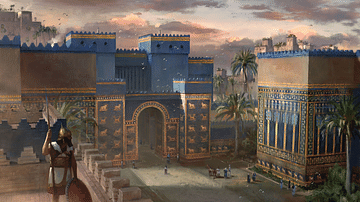
Definition
Ishtar Gate
The Ishtar Gate was constructed by the Babylonian King Nebuchadnezzar II circa 575 BCE. It was the eighth gate of the city of Babylon (in present-day Iraq) and was the main entrance into the city. The Ishtar Gate was part of Nebuchadnezzar's...
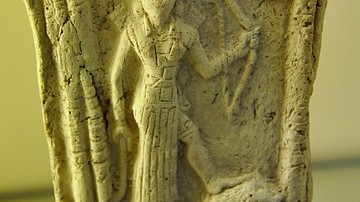
Definition
Ishtar
Ishtar (Inanna in Sumerian sources) is a primary Mesopotamian goddess closely associated with love and war. This powerful Mesopotamian goddess is the first known deity for which we have written evidence. While largely unknown in the modern...

Image
Ishtar Gate (Artist's Impression)
An artist's depiction of Ishtar Gate as it may have appeared around the time it was constructed in Babylon c. 575 BCE. From the game Old World.

Video
Ishtar Gate and Processional Way (reconstruction), Babylon, c. 575 B.C.E.
More free lessons at: http://www.khanacademy.org/video?v=U2iZ83oIZH0 Reconstruction of the Ishtar Gate and Processional Way, Babylon, c. 575 B.C.E., glazed mud brick (Pergamon Museum, Berlin) View this work up close on the Google Art Project...
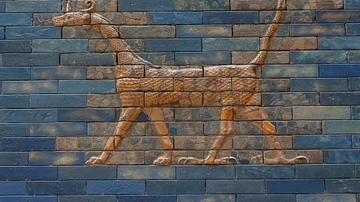
Image
Dragon from the Ishtar Gate
Detail from the Ishtar Gate of Babylon, built in 6th century BCE by king Nebuchadnezzar II; part of the Gate is now reconstructed in Pergamon Museum in Berlin.
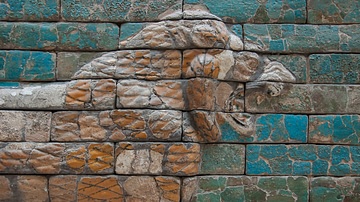
Image
Lion from Ishtar Gate
Detail from the Ishtar Gate of Babylon, built in 6th century BCE by king Nebuchadnezzar II; part of the Gate is now reconstructed in Pergamon Museum in Berlin.
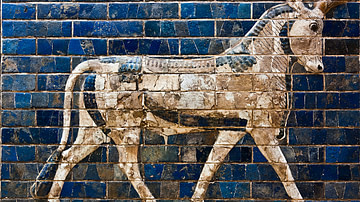
Image
Aurochs from Ishtar gate
Aurochs from Ishtar Gate at Babylon, constructed in about 575 BCE by order of King Nebuchadnezzar II.
On display in Istanbul Archaeology Museum in Istanbul, Turkey.
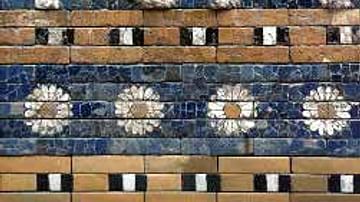
Image
Detail of the Ishtar Gate
Detail of the Ishtar-Gate : a lion, symbol of the goddess Ishtar.
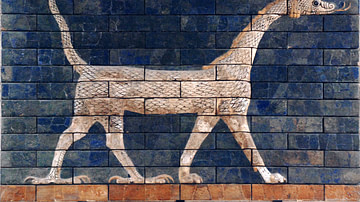
Image
Dragon of the Ishtar Gate
A Babylonian mušḫuššu dragon, glazed tiles from the Ishtar Gate, which was constructed by Nebuchadnezzar II, c. 575 BCE.
Istanbul Archaeological Museums.
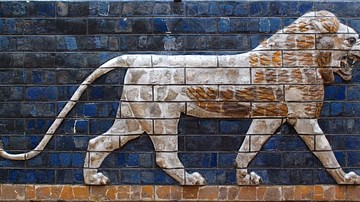
Image
Lion of Babylon, Ishtar Gate
Detail of a lion found along the processional way from Ishtar Gate into the city of Babylon. The Ishtar Gate was constructed around 575 BCE by King Nebuchadnezzar II of Babylon, made of fired bricks and decorated with animals made in glazed...